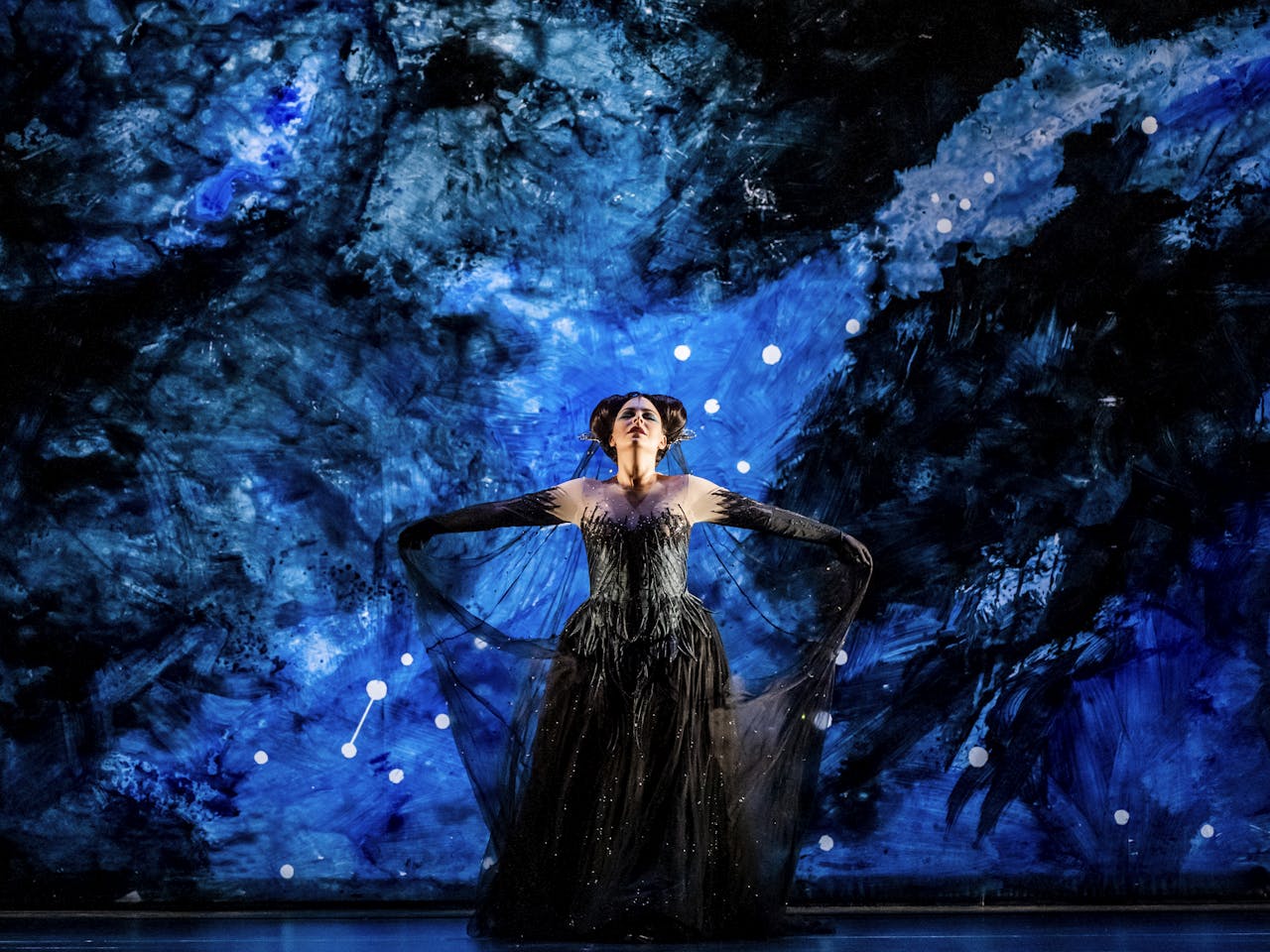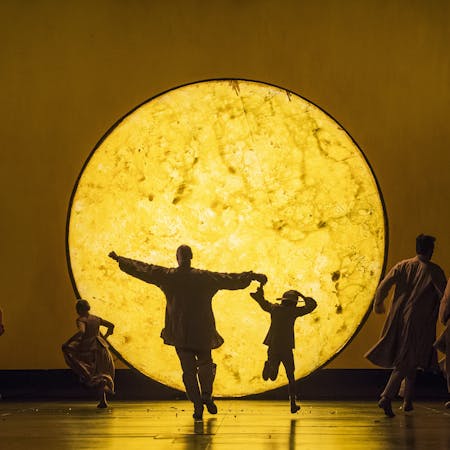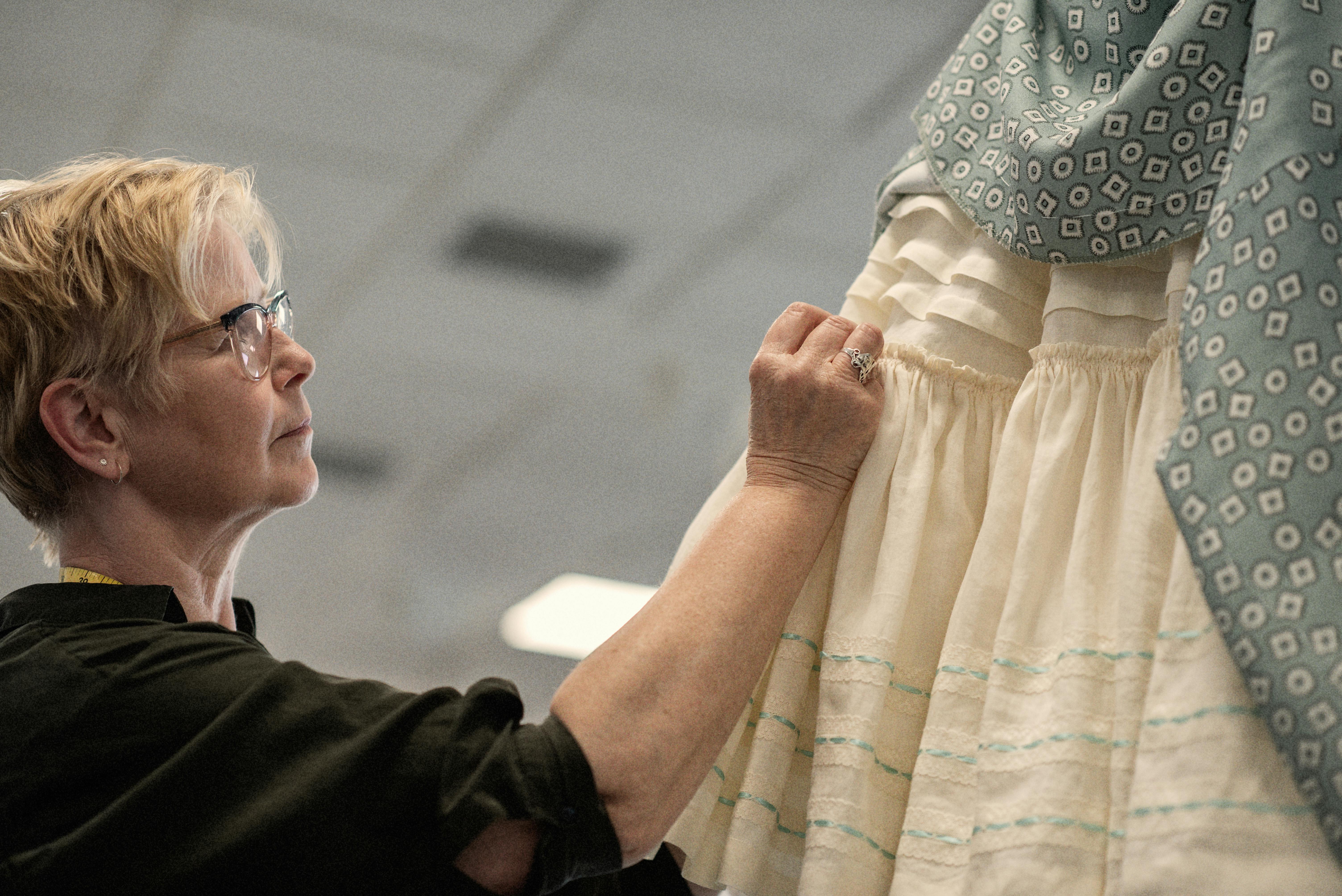The Magic Flute
The Magic Flute
The Magic Flute
Mozart's masterpiece – an enchanting quest for love and wisdom.

Mozart’s fantastical opera glitters in David McVicar’s enchanting production, conducted by French conductor Marie Jacquot in her Covent Garden debut, and Finnegan Downie Dear.
Mozart’s fantastical opera glitters in David McVicar’s enchanting production, conducted by French conductor Marie Jacquot in her Covent Garden debut, and Finnegan Downie Dear.
Royal Ballet and Opera Principal Julia Rausing Trust

Story

Prince Tamino promises the Queen of the Night that he will rescue her daughter Pamina from the enchanter Sarastro. He begins his quest, accompanied by the bird-catcher Papageno – but all is not as it seems…
Tamino and Papageno discover Sarastro is a wise and kind leader. They undergo three ordeals. By the end they are united with their true loves: Tamino with Pamina, and Papageno with his Papagena.
Background
A fantastical opera for all the family
Princess Pamina has been captured. Her mother, the Queen of the Night, tasks the young Prince Tamino with her daughter’s rescue. But when Tamino and his friendly sidekick, Papageno, embark on their adventure, they soon learn that when it comes to the quest for love, nothing is as it really seems. Guided by a magic flute, they encounter monsters, villains, and a mysterious brotherhood of men – but help, it turns out, comes when you least expect it.
With the Queen of the Night’s showstopping arias, an Overture that fizzes with energy, Papageno’s catchy tunes and sublime melodies for Pamina and Tamino, the music of The Magic Flute leaves no heart uncharmed. Two starry casts include Julia Bullock and Lucy Crowe as Pamina, Amitai Pati and Mingjie Lei as Tamino, Huw Montague Rendall as Papageno, Kathryn Lewek and Annie Fassea as the Queen of the Night and Soloman Howard and Timo Riihonen as Sarastro, led by French conductor Marie Jacquot in her Covent Garden debut, and Finnegan Downie Dear.
Performance history
The Magic Flute was Mozart’s last opera before his untimely death at the age of 35. The premiere took place on September 30, 1791, not in a royal theatre, but the popular Vienna Theater auf der Wieden. The actor Emanuel Schikaneder wrote the libretto and played the role of Papageno. It was a huge success from the outset – although some of Mozart’s masonic colleagues were offended by the opera’s references to their customs: a closely guarded secret.
A viral hit
Mozart’s The Magic Flute features ‘Der Hölle Rache’ (‘The wrath of hell’) - the famous aria sung by the Queen of the Night to her daughter, Pamina. Do not be fooled by the major key: this is an aria that smoulders with fury, as the Queen threatens to disown her daughter if she refuses to kill her enemy, Sarastro. The aria is a masterclass in coloratura singing (fast-moving notes and virtuoso technique) reaching the stratospheric heights of F6. That’s three and a half octaves above middle C! Soprano Diana Damrau’s performance of the aria has racked up over 65 million views on our Youtube channel.
Cast and Creatives
Cast
The cast of this production may vary depending on performance date. Go to cast and dates to see these.
Creatives
Reviews

Access
There is lift access and step-free routes to over 100 seats in the Stalls Circle, Balcony and Amphitheatre. There are 10 steps or fewer to some seats in the Stalls Circle, Balcony, Amphitheatre and the Donald Gordon Grand Tier. All seats in the Orchestra stalls are accessed by 9 steps or more. A handheld bell is rung by Front of House staff to signal guests to take their seats before a performance. The bell is loud and can be startling. The bell is rung approximately ten minutes before the show starts and at each interval.
We have an assistive listening system available to use. This opera is Sung in German with English surtitles.
Accessible performances:
There will be British Sign Language interpretations and Captions during the School's Matinee performance on 23rd October 2025.
There will be an Audio Described performance with a Touch Tour at 5.45pm on 25 October 2025. Touch Tours must be booked by contacting boxoffice@roh.org.uk for tickets.
There will be a British Sign Language interpreted and Captioned performance on 28 October 2025.
Join our Access Scheme for priority access performance tickets and to personalise your account for your access requirements.
See our Accessibility page for more information on access at the Royal Opera House.

Costume Appeal
The Costume Department work year-round to prepare the beautiful, intricate and specialist costumes ready for our performers to wear. They are responsible for crafting the future of ballet and opera.
Help them bring the artistic visions of creative teams to life, all whilst maintaining a strong commitment to sustainabiltiy, by making a donation to our Costume Appeal.
For people, not profit. Making world class ballet and opera for everyone.
Royal Opera House Covent Garden Foundation, a charitable company limited by guarantee incorporated in England and Wales (Company number 480523) Charity Registered (Number 211775)
